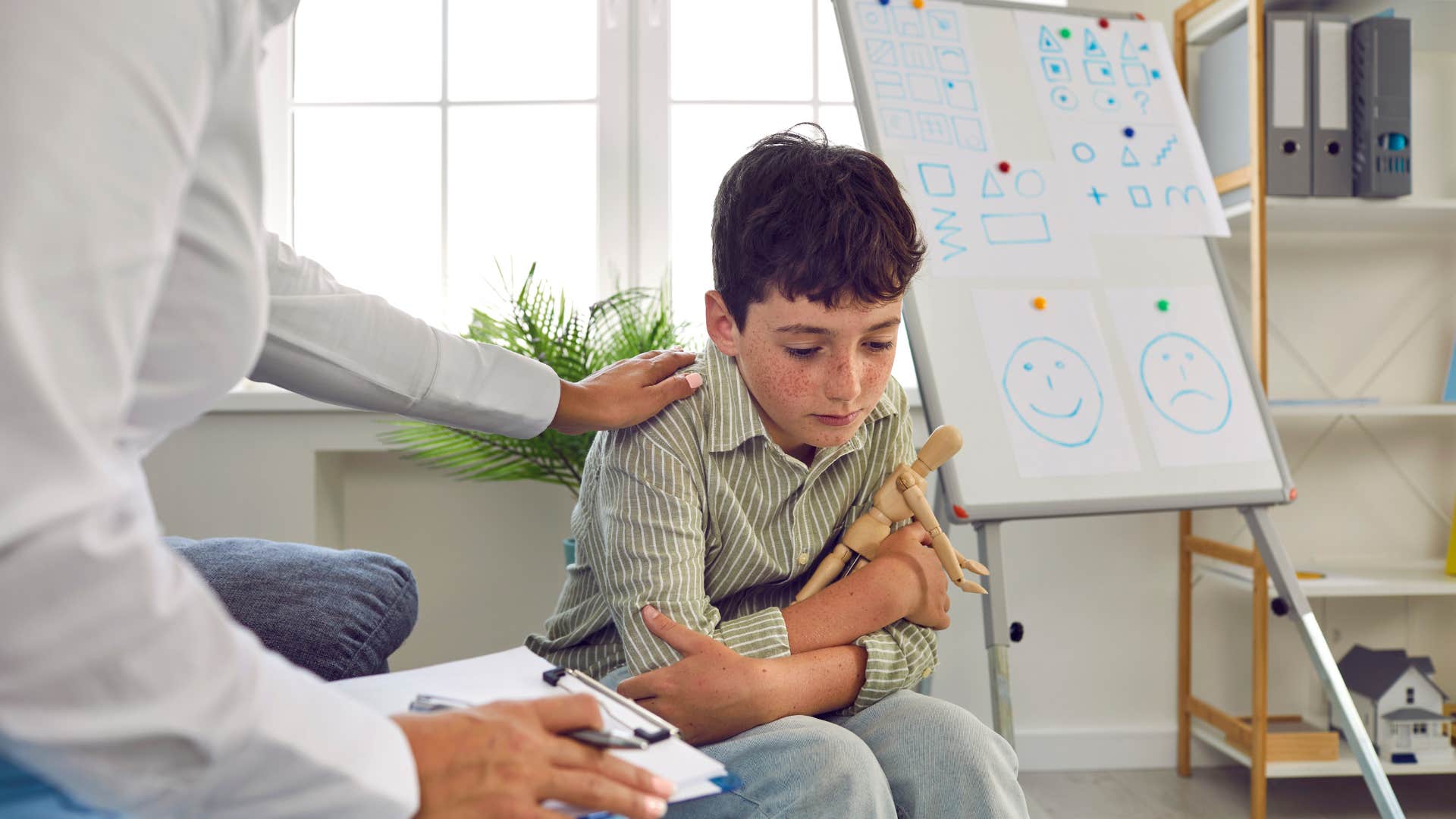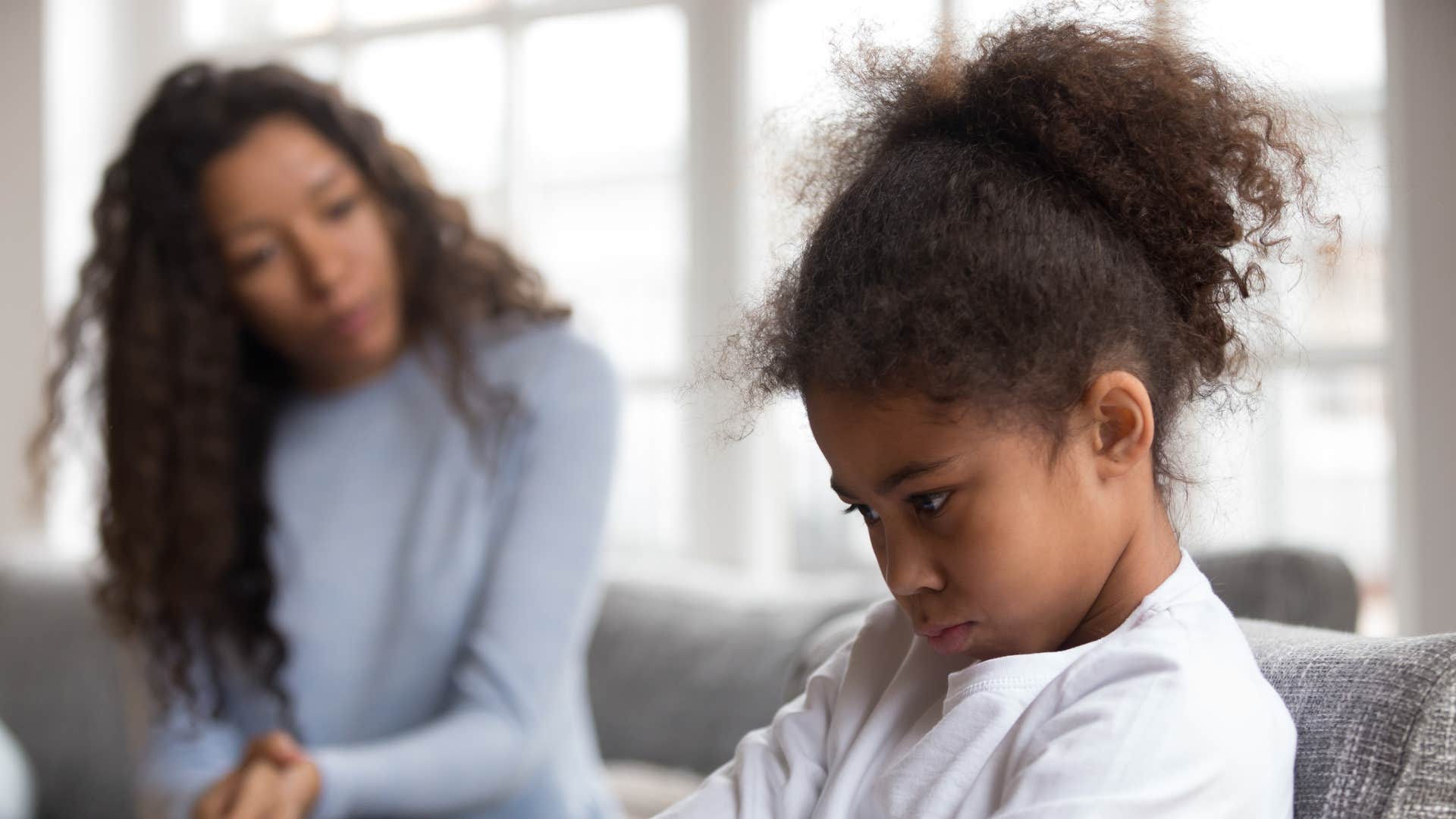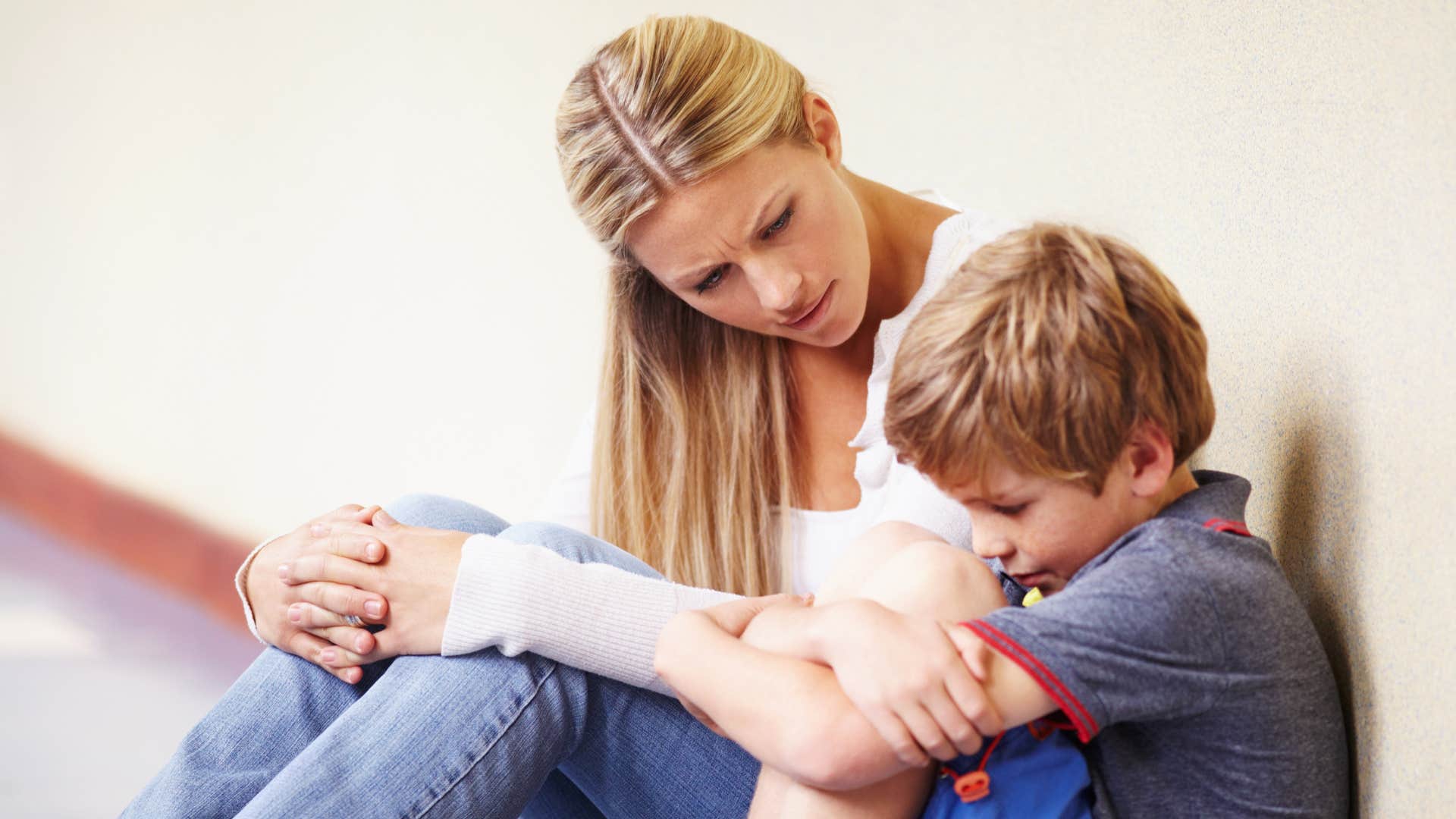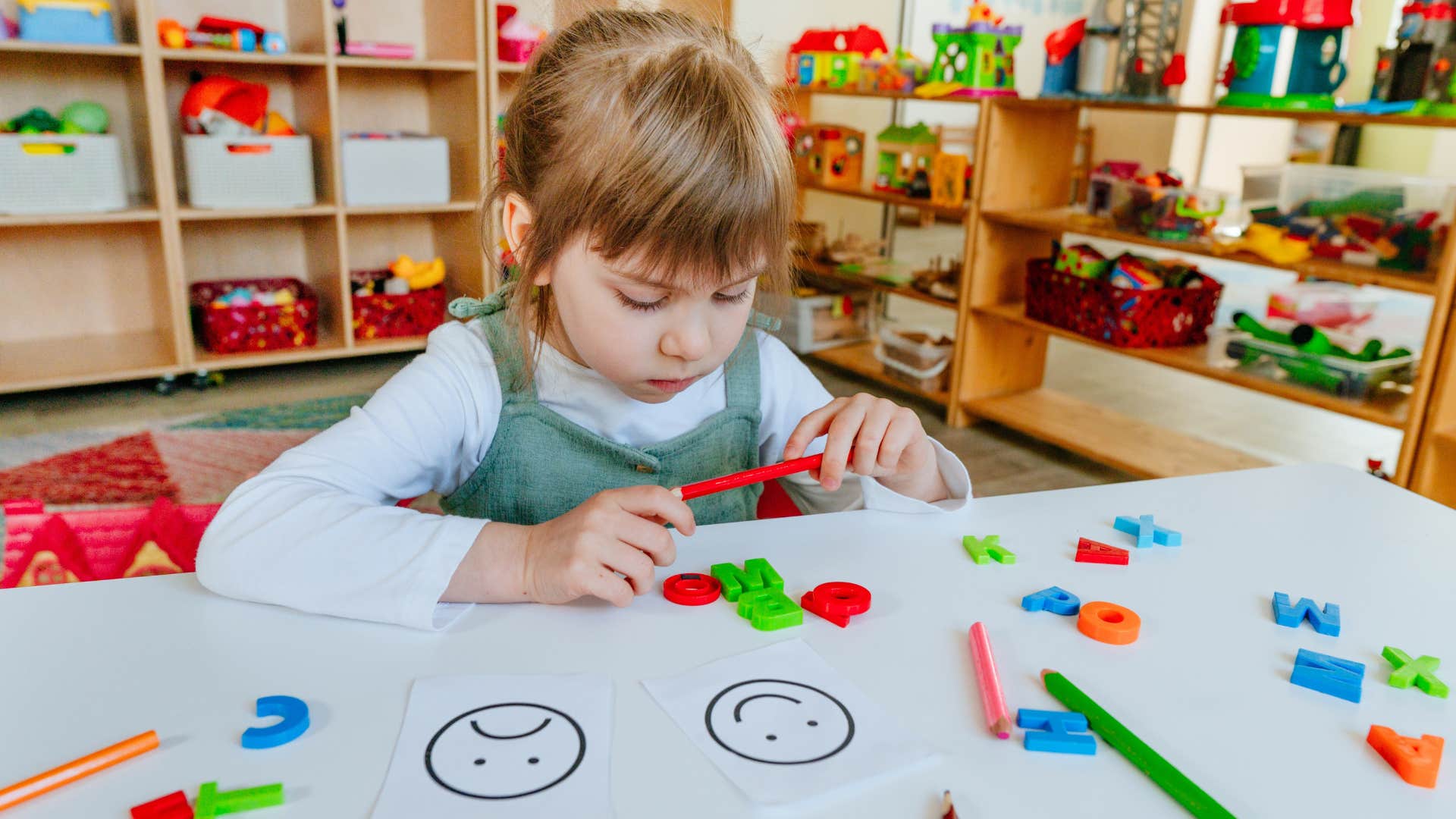The #1 Parenting Complaint Kids Secretly Share In Therapy, According To Experts
The quiet complaints most kids don't admit to their parents.
 AnnaNahabed | Canva
AnnaNahabed | Canva We've become aware of the problems caused by ignoring mental health, as shown in the data and statistics on children's mental health from the Centers for Disease Control. We have learned that being emotionally tough only means hiding behind a mask of indifference. Fortunately, the mental health stigma that kept many people from seeking treatment is crumbling. Mental health advocacy has made going to therapy a lot more acceptable and, in effect, more beneficial to those who seek it.
When kids seek therapy, at any age, to help with emotional challenges and obstacles, parents might worry about what is being said. However, for kids, this is taking the first important step toward better understanding. But what do they complain about your parenting in therapy? We asked for insight from some top healing and relationship experts.
Her are the top parenting complaint kids secretly share in therapy, according to experts:
1. Feeling judged for their choices
 Studio Romantic via Shutterstock
Studio Romantic via Shutterstock
One of the biggest sources of alienation from parents is when children get judged for not making the same choices in life as their parents wished they would, says Aline Zoldbrod, Ph.D. It's hard to believe how often children choose a professional field simply because their parents wished them to enter it.
Dr. Zoldbrod remembers having a lunch date with a well-known urologist who said he was getting out of the field. Why? Despite all those years of education and the great success he had achieved in the field, in his late forties, he decided that this had never been his dream.
It had been his parents' dream. So he gave up all the perks and the status he had already achieved, that he had worked so, so hard for. And he went back to art school!
2. Feeling controlled
 fast-stock via Shutterstock
fast-stock via Shutterstock
Adult children often attribute their life challenges to their upbringing, and sometimes they're right that it is a mitigating factor in their lives. Therapist Dr. Gloria Brame frequently hears complaints about mothers who remain overly enmeshed beyond their childhood years.
They may try to control their grown kids' choices, appearance, and behavior. With fathers, grievances usually center around the dad's emotional or physical absence. They may describe their fathers as authoritarian figures who lack empathy.
The common thread is that such parents failed to foster independence. As adults, their children often struggle with persistent self-doubt, negative self-images, and decision-making anxiety.
3. Feeling ignored or neglected
 fizkes via Shutterstock
fizkes via Shutterstock
Another frequent complaint Dr. Brame hears from clients about their parents is the contradictory experience of feeling both controlled and neglected. Their parents paid little attention to their emotional needs and wants, didn't truly listen to them as children, or dismissed what they said.
Some self-identified as latch-key kids who barely spent quality time with their parents and were left unsupervised for long periods. Yet paradoxically, when the parents were present, these same clients felt smothered by arbitrary rules and dictates issued without regard for how the children felt.
Several male clients specifically noted their only "fun" activities with their fathers were things the dad loved (hunting, fishing, camping), never what mattered to the sons, like having dad attend their sports competitions or school plays they participated in. This dynamic spans generations.
For example, today it's more likely to happen with parents who are physically present but emotionally absent because they are constantly scrolling on their devices. Children who never felt treated as equally important members of their family often end up creating distance in adulthood and moving far away, focusing primarily on their partners and children, or maintaining low-contact relationships with their parents.
In therapy, it is crucial to help clients get closure by finally accepting that their emotional needs were valid, even if their parents couldn't recognize or meet them. It can also open the door to forgiveness and reconciliation.
4. Feeling like they have to parent their parents
 SeventyFour via Shutterstock
SeventyFour via Shutterstock
Life coach Mitzi Bockmann thinks it depends on the generation. Boomers think their parents were fine. Gen-Xers would say their parents were absent. Millennials' parents were helicopter parents. Gen-Y & Z say their parents are ignorant of the issues around them.
All of those generations, I would guess, believe they had to parent their parents. They feel their parents needed to be cared for, and didn't take care of them as kids. It's easy for kids to lose sight of the fact that their parents are just people. They don't always know how to be a good parent.
As a result, they need support from their kids throughout life. This doesn't mean it's okay. All kids need to be nurtured, but it is a reality.
5. Feeling emotionally cut off
 PeopleImages.com - Yuri A via Shutterstock
PeopleImages.com - Yuri A via Shutterstock
The parent may have given food, shelter, and schooling, but not warmth, comfort, or emotional support. Even when the house is crowded, this makes people feel lonely, explains life coach Sidhharrth S. Kumaar.
Then, when loneliness is compounded by comparing a child to a sibling, a classmate, or even a parent, a child might feel less valuable and unique. These impacts can have long-lasting effects into adulthood.
6. Feeling misunderstood
 Lithiumphoto via Shutterstock
Lithiumphoto via Shutterstock
It's been the same for thousands of years, says life coach Susan Allan. Kids complain, "My parents don't understand me!" and it's true. Unless someone learns empathy and the vocabulary of empathy, they are unable to understand their children, and their children are unable to understand them.
However, working with parents and children, Allan has seen their entire relationship transform within a month. Work with parents and kids around mental health is vitally important when we look at the data, which shows mental health challenges were the leading cause of death and disability in the 3-17 age group in the USA.
Will Curtis is YourTango's expert editor. Will has over 14 years of experience as an editor covering relationships, spirituality, and human interest topics.

